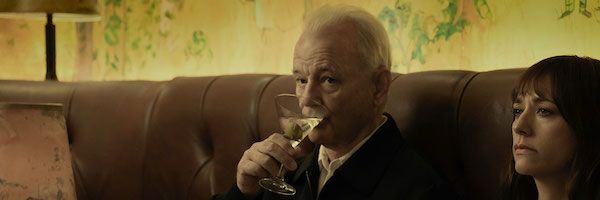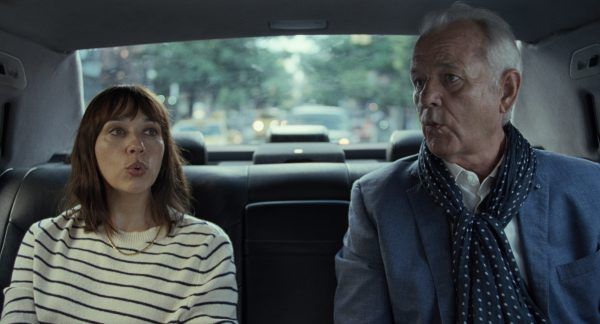Sofia Coppola’s new movie On the Rocks is a remarkably subdued affair, which isn’t necessarily an issue. One of Coppola’s biggest strengths is in how she captures loneliness and isolation, and in On the Rocks’ strongest moments the film conveys those emotions in a marriage that has become strained. But Coppola’s movie struggles because its central relationship is a father-daughter story where the actors simply don’t have any chemistry. Stars Bill Murray and Rashida Jones are fine actors, but nothing about their characters’ relationship feels lived-in or refreshingly unique. Without this core component, On the Rocks sputters along, failing to make much of an impact.
Laura (Jones) believes her marriage has hit a rough patch. Her husband Dean (Marlon Wayans) is always away on business leaving her in charge of their two young children. When Laura starts to suspect that Dean might be having an affair with a co-worker (Jessica Henwick), she turns to her raconteur father Felix (Murray), who had cheated on Laura’s mother, for advice, which he turns into an adventure to spy on Dean and uncover his potential philandering. What’s meant as a father-daughter bonding experience soon makes Laura wonder how much she really wants to invest in her father’s primitive view on gender roles and the shortcomings of marriage.
The best parts of On the Rocks oddly have nothing to do with Murray despite his previous successful collaborations with Coppola. The film is at its strongest when it’s showing the strain on Laura and Dean’s marriage not through any blow-ups or enmity but rather how they’ve fallen into certain roles that have rendered their relationship inert and sexless. She feels like she’s now in charge of scheduling and childrearing while he focuses on his career. In essence, she’s now a secretary and nanny rather than a wife, and while there’s nothing malicious in Dean’s actions, their marriage has transformed in a way that Laura doesn’t like or recognize, so she’s inclined to believe that her husband must be cheating.
This opens to the door to the Felix/Laura relationship, but there’s just not that much spark there. Murray is out here doing his Murray thing by being charming and witty, but you never feel like there’s a real relationship between Felix and Laura. Perhaps that’s what Coppola was going for—to show the strain between these two characters—but if that’s the case, then why does Laura confess her concerns to her father in the first place even if she secretly wants them confirmed? Either the relationship is strained or it isn’t, and what you get between Felix and Laura is that he’s out here charming the cops and doormen of New York City and she kind of rolls her eyes at his eccentricities. Her fear—that she’s married an adulterous man like her father—is understandable, but the way that concern plays out is in dull vignettes between Laura and Felix that saps the film of any tension.
The worst thing about On the Rocks is, oddly, Murray, not because of his performance, but because his character doesn’t really fit. He doesn’t help Laura with any self-discovery or provide some catharsis beyond her realizing that she doesn’t have to be held prisoner by her father’s actions and worldview. And yet within this framing, the central issues in Laura’s marriage—her isolation, her alienation—are never really solved or addressed, so the resolution falls flat. Instead, On the Rocks opts for a father-daughter story that never has much personality or zest, and so the whole film plays like a tepid affair of cocktails and Felix spouting Dad Trivia while Laura gets mildly irritated.
Rating: C-
On the Rocks arrives on AppleTV+ later this year.


